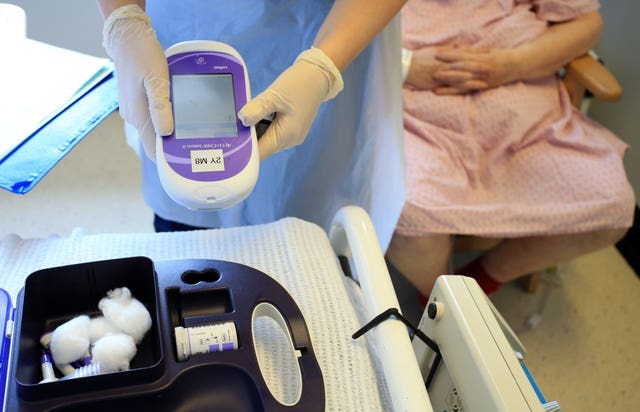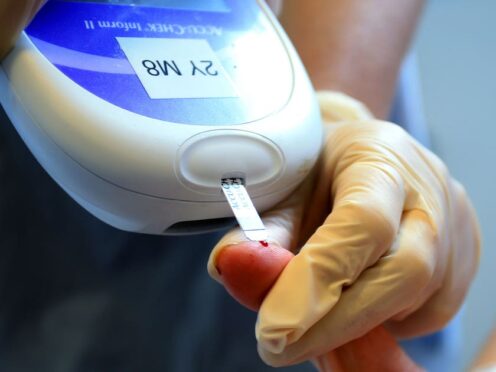A common type 2 diabetes test may be inaccurate for tens of thousands of South Asian people in the UK, new research suggests.
The research identified a genetic variant among people of South Asian heritage that affects the results of the HbA1c test.
The findings suggest that the test, which measures average blood sugar levels, may give falsely lower results in South Asian people who carry this genetic variant, leading to delayed diagnosis.
Data suggests that there are more than 420,000 people from a South Asian background living with diabetes in England, and more than 230,000 have a diagnosis of prediabetes and are therefore at high risk of developing type 2 diabetes.
With around 7.6% of South Asians carrying this variant, this suggests the HbA1c test is underestimating blood sugar levels in around 32,000 South Asian people with diabetes and 17,500 with prediabetes in England alone.
The test is crucial for diagnosing type 2 diabetes, monitoring prediabetes, and guiding diabetes treatment.
Dr Miriam Samuel at Queen Mary University London and colleagues in the Genes and Health Research Team identified the genetic variant that is found in 7.6% of people of South Asian heritage but is ultra rare in other ethnicities.
Dr Samuel said: “Many genetic variants linked to red blood cell conditions are ultra-rare amongst the Northern Europeans who have historically dominated genetic studies.
“We demonstrate one such variant that is carried by 7.6% of South Asians which could affect the accuracy of HbA1c and cause delays in diabetes diagnosis.
“Studies such as Genes and Health, focusing on populations who are underserved in genetic research, are vital to understand the different pathways that may contribute to diabetes inequalities in these communities.”
Dr Elizabeth Robertson, director of research at Diabetes UK, said: “This evidence showing that the accuracy of a common test to diagnose and monitor type 2 diabetes is linked to a person’s ethnicity should be urgently investigated further.
“It’s incredibly important that healthcare professionals are armed with a precise way to evaluate average blood sugar levels over extended periods.
“Without this, they are navigating in the dark and potentially at risk of overlooking cases of type 2 diabetes.
“Every individual at risk or with diabetes, regardless of their background, deserves equal access to effective diabetes care to live a healthy life and mitigate long-term diabetes complications.”
The researchers looked at genetic and health data from the Genes and Health study – which included more than 60,000 individuals of Bangladeshi or Pakistani ethnicity living in England – and the UK Biobank.

They found that people with this gene were found to have falsely lower HbA1c levels and differences in their full blood count.
HbA1c tests estimate average blood sugar levels by measuring how much sugar is attached to haemoglobin in red blood cells.
The research suggests that the genetic variant is linked to changes in red blood cells, and that this affects HbA1c test results.
According to the findings, people who had one copy of the genetic variant were diagnosed with type 2 diabetes on average one year later.
While those with two copies were diagnosed on average two years later, than those without the genetic variant.
Inaccurate results might also mean people do not receive timely and appropriate treatments needed to manage blood sugar levels and reduce risk of long-term complications, which could include heart attacks, strokes, amputations, and sight loss, the experts suggest.
The findings indicate additional blood sugar testing, such as fasting glucose and oral glucose tolerance tests, and alternative monitoring methods might be needed in South Asian people who carry the variant.
The findings will be presented at the Diabetes UK Professional Conference 2024.
